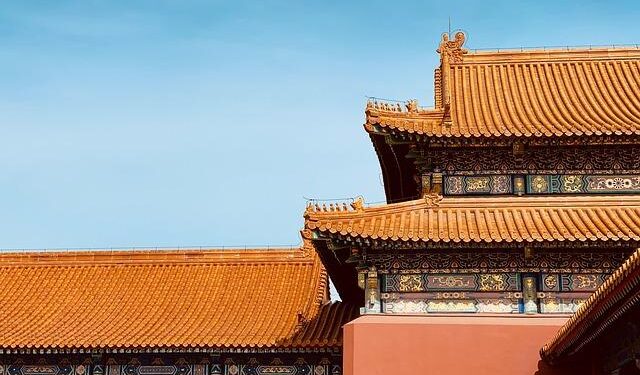Reframing the COVID-19 Origin Debate: China’s Controversial Assertions
In a striking development within the global conversation about COVID-19’s beginnings, Chinese authorities have recently posited that the virus might have originated in the United States. This claim directly challenges widespread theories implicating a laboratory incident in Wuhan as the pandemic’s source. Announced during a high-profile press briefing, these statements highlight China’s ongoing strategy to redirect scrutiny away from its initial outbreak management and reshape international perceptions.
This announcement emerges amid escalating geopolitical frictions and renewed demands from various international actors for an exhaustive probe into COVID-19’s provenance. The situation intensifies questions surrounding transparency, accountability, and political influence on scientific investigations worldwide. Both China and the U.S. now face complex repercussions—not only concerning public health narratives but also regarding diplomatic relations.
China Shifts Blame Toward U.S.: Key Claims and Implications
Chinese officials have forcefully disputed allegations linking COVID-19 to Wuhan laboratories by suggesting alternative origins in other countries, particularly pointing fingers at America. Their main arguments include:
- Allegations of Disinformation: Beijing accuses U.S. authorities of spreading misleading information about Wuhan lab involvement.
- Demand for Transparency: Calls are made for Washington to fully disclose data related to its own biological research facilities.
- Advocacy for Broader Investigations: China urges that inquiries extend beyond Wuhan to encompass multiple global sites potentially connected with early virus cases.
The World Health Organization (WHO) continues advocating for impartial investigations free from political bias. In response, China has published data summarizing findings from various countries where early signs of SARS-CoV-2 or related antibodies were detected prior to recognized outbreaks:
| Country | Main Observations |
|---|---|
| United States | Diverse viral variants identified as early as late 2019 in retrospective analyses. |
| Italy | SARS-CoV-2 antibodies discovered in blood samples collected months before official case reports. |
| Brazil | Anomalous respiratory illnesses documented preceding known epidemic waves. |
Evaluating Evidence: Lab Leak Hypothesis Versus Natural Spillover Theory
The theory proposing that SARS-CoV-2 accidentally escaped from the Wuhan Institute of Virology remains one of several competing explanations fueling intense debate among scientists and policymakers alike. Given this facility’s history researching bat coronaviruses, suspicions persist despite inconclusive proof so far.[1]
A spectrum of expert opinions highlights critical factors shaping this discourse:
- Evidentiary Ambiguity: Current data neither definitively confirms nor rules out any single origin hypothesis; further rigorous studies are essential.
- The Role of Geopolitics: Political rivalries between major powers may skew interpretations or hinder transparent sharing of information relevant to tracing viral emergence.
- Pandemic Precedents: Historical outbreaks such as HIV/AIDS demonstrate how pinpointing exact zoonotic sources can be protracted and complex processes involving multifaceted ecological interactions.[2]
| Theory | Core Arguments | Current Consensus |
|---|---|---|
| Lab Leak Hypothesis < td >Possible accidental release during virological research activities at Wuhan lab facilities . < td >Ongoing investigation ; no conclusive evidence yet . < tr >< td>Zoonotic Spillover Model < td >Natural transmission event involving animal hosts , likely bats or intermediate species . < td >Widely supported by epidemiological patterns but requires additional confirmation . < tr >< td >U.S.-Origin Claim by China < / < / < / tr > Fostering Global Collaboration: Pathways Toward Pandemic Transparency and Trust-BuildingThe ongoing disputes over COVID-19’s origin underscore an urgent need for enhanced international cooperation grounded in openness rather than rivalry. To effectively address future pandemics—and resolve current uncertainties—several strategic measures should be prioritized globally:
|














